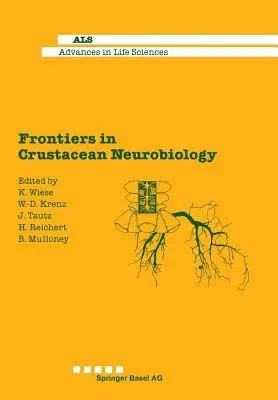K Wiese
(Author)Frontiers in Crustacean Neurobiology (Softcover Reprint of the Original 1st 1990)Paperback - Softcover Reprint of the Original 1st 1990, 23 August 2014

Qty
1
Turbo
Ships in 2 - 3 days
In Stock
Free Delivery
Cash on Delivery
15 Days
Free Returns
Secure Checkout

Part of Series
Advances in Life Sciences
Print Length
563 pages
Language
English
Publisher
Birkhauser
Date Published
23 Aug 2014
ISBN-10
3034856911
ISBN-13
9783034856911
Description
Product Details
Author:
Book Edition:
Softcover Reprint of the Original 1st 1990
Book Format:
Paperback
Country of Origin:
NL
Date Published:
23 August 2014
Dimensions:
24.41 x
16.99 x
3.02 cm
ISBN-10:
3034856911
ISBN-13:
9783034856911
Language:
English
Location:
Basel
Pages:
563
Publisher:
Series:
Weight:
925.33 gm